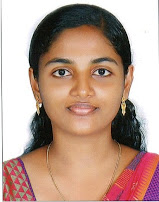INTIMATION FOR BODHIKA SEMINAR - 28/09/2022
DEPARTMENT OF RASA SHASTRA AND BHAISHAJYA KALPANA
Pottali Kalpana
is a unique preparation mentioned in Ayurvedic texts. Rasagarbha pottali, the experimental drug is a formulation
developed by Acharya Vasudev Mulasankara Dvivedi and Harisankar Sarma, first
recorded in the book, Rasasastra by PHC Murthy. The present study was aimed at
assessing the acute and sub-acute toxicity of orally administered Rasagarbha pottali. Rasagarbha Pottali was prepared in gandhaka dravapaka method. Further analyses like XRD, XRF and PSA
done. Acute toxicity test was performed on Wistar rats at a single oral dose of
1000 mg/kg for 14 consecutive days. General behavioural adverse effects and
mortality were determined. In the sub-acute study, Rasagarbha Pottali was administered orally at doses of 100, 150 and
200 mg/kg daily for 28 days to Wistar rats. Sections of brain, heart, lungs,
livers, stomach, kidneys and reproductive organs were removed for histological
studies. Acute toxicity study showed that the oral LD50 value of RGP
was above 1000 mg/kg. The sub-acute toxicity study did not produce any
observable symptoms of toxicity and no significant variation in body weight,
organ weights, haematological and biochemical parameters or mortality in all
treated rats. Mercury was detected at levels below detection in the liver
tissue of high-dose females via ICP-MS. It was concluded that drug RGP did not
cause any systemic adverse effect in the acute and sub-acute oral toxicity
trials in rats up on oral administration and is safe at all doses tested over a
period of 28 days in rodents. Thus 100- 200 mg/Kg body weight of the RGP is
safe to use in preclinical pharmacological efficacy analysis up to a month
period.
TIME: 2:00-4:00 PM
VENUE: OFFLINE AT COLLEGE AUDITORIUM
Guggulu, an exudate obtained from the plant
Commiphora mukul is a common
medicinal ingredient widely used in ayurveda since time immemorial. Marketing
of guggulu and its preparations is a
great concern of different ayurvedic pharmaceutical industry due to its
adulteration, irrational substitution and non-availability of genuine samples.
Proper quality of the formulations is essential for maintaining its therapeutic
efficacy. Also, standardisation of raw drugs and formulations with the help of
modern analytical tools increase their scope, acceptance and scientific
validity.
In the present study, an attempt was made for the market sample
analysis of Kanchanara guggulu
tablets manufactured by selected GMP certified ayurvedic companies in Kerala. Kanchanara guggulu is a classical
formulation mentioned in Sharangadhara
Samhita and Bhaishajya Ratnavali
containing guggulu as its major ingredient.
The other ingredients are Kanchanara twak, Sunti, Pippali, Marica,
Haritaki, Vibhitaki, Amalaki, Varuna twak, Patra, Ela and Twak. No market sample analysis has been
conducted on this potential medicine irrespective of the adulterations in guggulu and of other raw drugs like marica, nagara, ela etc.
Hyperuricemia is defined as plasma(serum)
urate concentration > 6.8 mg/dL. The prevalence of hyperuricemia varies with
age and gender. Over all prevalence rate of hyperuricemia is 25.8%. A higher
proportion of males to have hyperuricemia than females. Effective management of
hyperuricemia helps in preventing risk factors like gouty arthritis,
nephrolithiasis and urate nephropathy. The yoga selected for the study
is Kokilakshadi Kashaya mentioned for Vatharakta in Bhaishajya
Ratnavali,is widely used by ayurvedic practitioners for treating
hyperuricemia.
Methodology
includes literature review, preparation and analysis of drug, clinical study and
statistical analysis. In this study clinical evaluation of hyperuricemic effect
of Kokilakshadi Kashaya was done an interventional study pre and
post test without control group in 20 subjects are selected according to the
inclusion criteria from OPD of Govt Ayurveda college, Trivandrum. Kokilakshadi
Kashaya was given to subject with a dose of 48 ml twice daily before
food and 250mg of Pippali Choorna was given as Anupana. The duration of study was 45 days. The formulation Kokilakshadi Kashaya is effective in
reducing serum uric acid level and symptoms of Gouty arthritis i.e. pain, swelling,
redness. So Kokilakshadi Kashaya can be suggested as a good
choice for Hyperuricemia since all the ingredients are easily available with
less chance of adulteration and comparatively cheap.




No comments:
Post a Comment